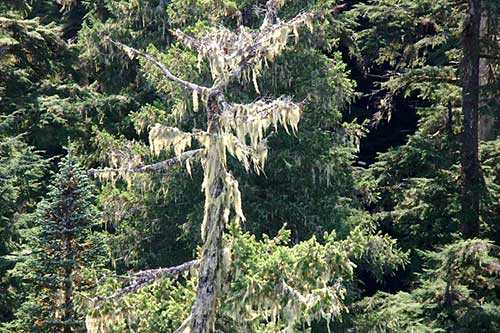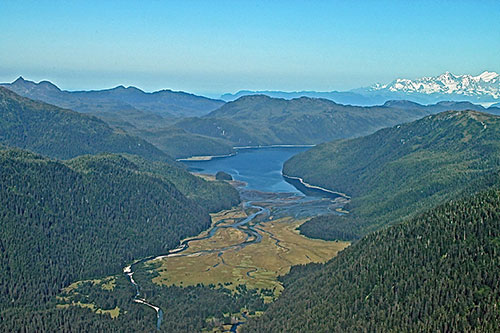
Scientists Warn Climate Change is Threatening World's Most Expansive Temperate Rainforests
March 03, 2015
Using global climate models, researchers assessed changes in temperature and precipitation from recent to future climatic conditions projected toward the end of the century if emissions from burning fossil fuels and deforestation continue to rise.
Older forests on north-facing slopes in the Pacific Northwest may provide a refuge from a warmer drier future climate.
Applied climate models predicted the future distribution of eight rainforest conifers of commercial value and broad rainforest communities across a 2,200-mile stretch of coastal rainforests in the Pacific Northwest, British Columbia, and Alaska. Published by Science Direct in the online global reference "Earth Systems and Environmental Sciences," key findings include:
Dr. Marni Koopman, Climate Change Scientist, Geos Institute, stated, "Our results provide the first comprehensive assessment of climate change shifts likely to affect commercially valuable conifers and rainforest communities across two countries (US and Canada) and four states (Alaska, Washington, Oregon, California)."
Expansive old-growth rainforests on the Tongass may act as a climate refuge but only if protected from logging
DellaSala added, "The Tongass is our best hope for holding onto the verdant rainforest web-of-life that has sustained native peoples for millennia and supported the subsistence economy of southeast Alaska but only if the old-growth forests are protected for their climate and wildlife benefits." Dr. Patric Brandt of the Research Program on Climate Change Agriculture and Food Security (CCAFS), which specializes in global warming research, participated in the study, adding, "We know from studies around the world that if rainforests are stressed by the combined impacts of climate change and land-disturbances, there is little hope in maintaining their ecosystem benefits for people or wildlife over the long term." North Pacific coastal rainforests represent 35% of the world's total temperate rainforests. Globally, most of Europe's temperate rainforests and the coast redwoods are already gone due to logging and development, while temperate rainforests on the Tongass and Great Bear (British Columbia), Tasmania, Russia, and Chile remain relatively intact. The impacts of human-caused climate change are scientifically indisputable and Alaska is already experiencing some of the most rapid and severe changes in the world. During the past thirty years, Alaska has experienced sharp reductions in snow-cover, shorter river- and lake-ice seasons, melting glaciers, sea-ice and permafrost retreat, increased depth of summer thaw, and displacement of aboriginal villages from traditional lands. Actions taken now should explicitly address such issues to avoid exacerbating consequences for Alaska's natural resource-based economies as temperatures are projected to increase by another 4 to 8 degrees Fahrenheit by mid-century.
Edited by Mary Kauffman, SitNews
On the Web:
Source of News:
|
||

